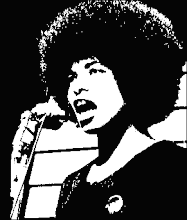Ah-ha note the subtle double-entendre of that title. Completely unintentional.
I couldn't be more grateful for Ms. Shelden's post considering she hammered out a major point of my final paper. Particularly the issue concerning sexuality and identity.
As far as Mantissa goes there are very evident connections to be made. First one can connect the sexual connection between Miles and Erato. Particularly in Parts III and IV where they discuss their sexual activity as the culmination and endpoint in their joint creative process. The scene where she reappears in human form and the wallss of the hospital room turn to glass would be considered, pun intendend, the climax of the novel (if one could be pinpointed). It is interesting because at first, when reading the guest post, I felt that Fowles' followed the pattern of Lacan's thinking by creating the image of the mirror stage in the first section of the novel, changing Erato's image, and in many ways transforming signifier to signifier without any real basis of stability for the reader. Yet, "When you consider the force of the death drive, and jouissance as the orgasmic shattering of the self for which the death drive aims, how might you read the first section of Mantissa?" makes me feel as though there is a slight deviation from Lacan's theory.. Fowles' introduces Miles as the unidentified 'it' until he processes through the mirror stage (which we have discussed in blogs and in class so I won't go through it again) but then ends section one with the creative unconscious awakening through the orgasmic experience: his sexual peak results in the creation of the novel. This pattern continues throughout the novel and it makes me wonder if Fowles' thinks of the moment of jouissance as a moment of the 'real' occuring within the illusion.
Hear me out: the world we live in, according to Lacan, is a world of signifiers which develop several illusions. Most importantly, the way we understand the world and the ways in which we self-identify are through language which is completely unstable because there is no central or absolute referent. Throughout life we spend our time continuously searching for the real within the illusion but we're trapped because the only way we know how is through a system that is constantly falling to pieces and has no real stable truth anyway. If the moment of jouissance and the death drive are the things that "...always threatens to undo one’s sense of self" does it mean that at that point, in that peak, we are no longer contained within the constructs of the language system (in other words, we are outside of the way we usually understand ourselves 'to be') so we are existing within a realm of real. Again, this is not to suggest that we all just need to get off all day to identify with ourselves, but within that moment are we, to some degree, because we are outside of the structure/illusion of our worlds, for the slightest moment real?
I could be taking the notion out of context or manipulating the idea to an unnecessary degree but it does make some sense. Plus, that's pretty great, no?
Peace and Jouissance to all!
Priscilla
Final Post
16 years ago
